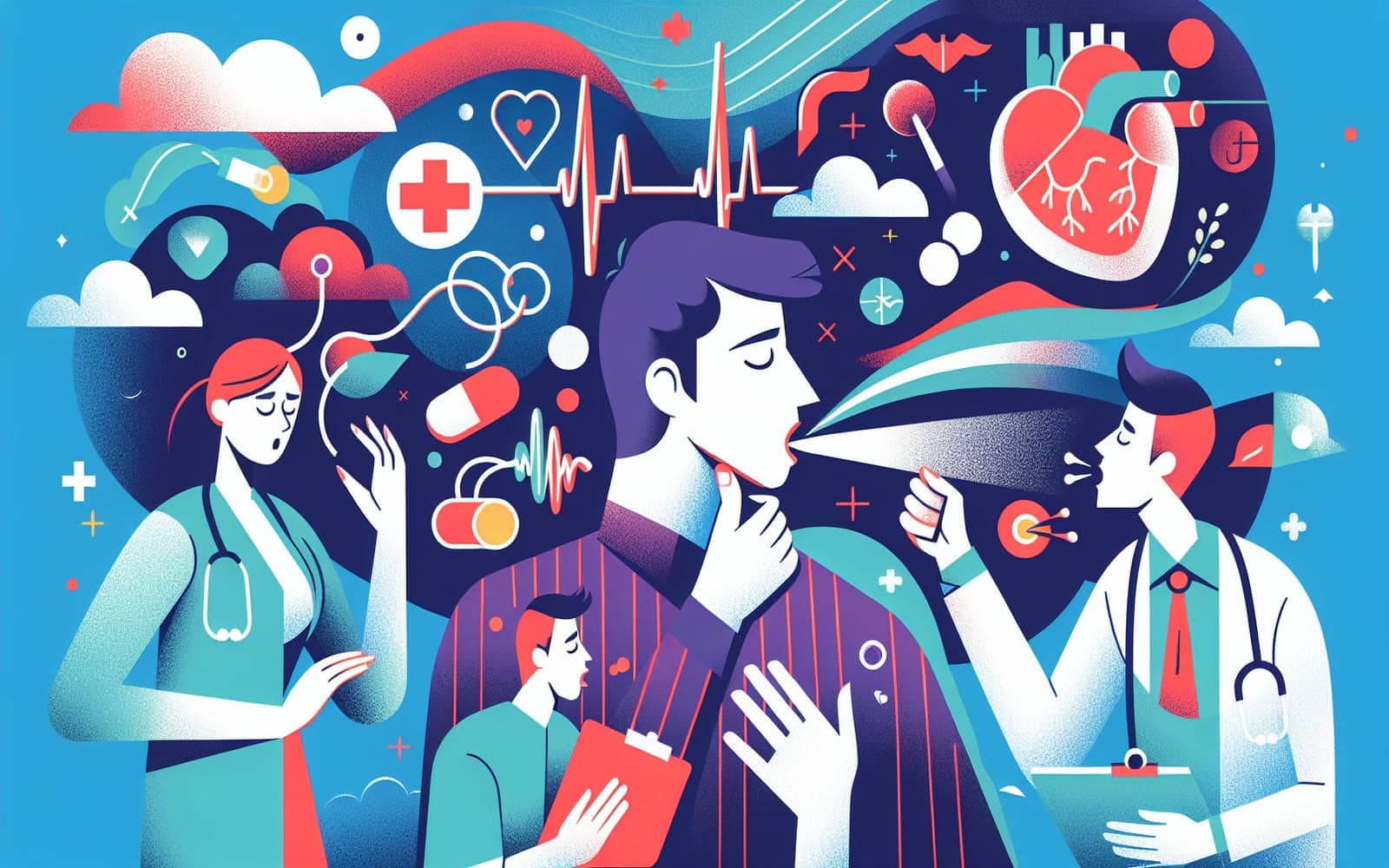Contents
-
What Are Hiccups?
-
Possible Causes of Hiccups
-
When to See a Doctor
Hiccups: Why Do They Happen and What Can You Do?
Hiccups: Why Do They Happen and What Can You Do?
The Big Picture
Hiccups are more than just a nuisance; they can indicate underlying health issues. Let's delve into what causes them and how to manage them.
Contents
-
What Are Hiccups?
-
Possible Causes of Hiccups
-
When to See a Doctor
What Are Hiccups?
Hiccups are involuntary contractions of the diaphragm muscle, leading to a quick intake of breath that's suddenly stopped by the closure of the vocal cords. This process creates the characteristic 'hic' sound. They are common and usually short-lived.
Possible Causes of Hiccups
Hiccups can be triggered by a variety of factors, including overeating, spicy foods, stress, and even sudden changes in temperature. More prolonged hiccups may be linked to nerve irritation or central nervous system disorders.
When to See a Doctor
If hiccups last more than 48 hours, it's important to seek medical advice. Persistent hiccups can interfere with daily life and may signal a more serious health concern.
FAQs
What causes the 'hic' sound?
The 'hic' sound is caused by vocal cords closing after a diaphragm spasm.
Can stress cause hiccups?
Yes, stress can be a trigger for hiccups.
When are hiccups serious?
Hiccups lasting over 48 hours may require medical attention.
Wrapping Up
Hiccups are usually harmless but can sometimes indicate a larger issue; stay informed and proactive.
Additional References
-
Smith HS, et al. Management of hiccups in the palliative care population. Am J Hosp Palliat Care 2003; 20:149.
This article has been reviewed for accuracy by one of the licensed medical doctors working for Doctronic.












